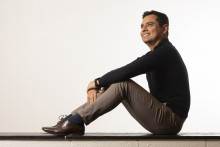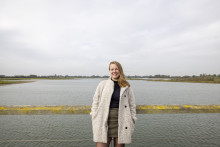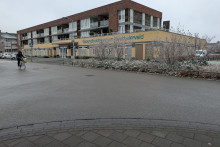Nelleke van Adrichem-Rotteveel has had two positions at the University of Twente. For the most part she is the Key Strategist for the Honours Programmes, but in her free time she’s been a PhD researcher at the BMS Faculty. ‘I decided to start a PhD because I was curious,’ she says. ‘I’m a life-long learner. Learning is my main spare time activity.’
The topic of her research was ‘Flexibility and Coherence of Master’s Programmes’. ‘We see that flexibility is very important. University students come from diverse backgrounds and have diverse learning needs,’ explains Van Adrichem-Rotteveel. ‘However, there is also need for coherence, meaning that all parts of the curriculum need to be connected, so that students can achieve their goal – getting a diploma and corresponding skills. And too much flexibility may harm the coherence.’
Two case studies at the UT
The UT staff member therefore decided to explore how universities could create the right balance between the two. She carried out four case studies: two in the UK and two in the Netherlands, directly at the University of Twente. At the UT she looked at the programmes of Public Administration and the ITC’s Geographical Information Management and Applications. ‘I chose these because they profiled themselves as highly flexible,’ clarifies Van Adrichem-Rotteveel.
‘I wanted to focus on the differences between the individual programmes in order to develop a theoretical model. I succeeded and the model makes it possible to indicate which dimension of flexibility can influence coherence in a Master’s programme,’ says the soon-to-be PhD graduate. ‘This model could be used by any programme to see how it could offer the right balance between flexibility and coherence.’
Only the first step
These results are only the first step, though, says Nelleke van Adrichem-Rotteveel. ‘I would possibly like to do more research and carry out more case studies. And it would of course be nice if the UT could directly apply my findings. But if I would continue with research, I wouldn’t do it in my spare time anymore. That took a very long time,’ she adds.
'It's nice to see that some people consider me a kind of a role model'
Does she regret embarking on a journey of a PhD student or would she do it all over again? ‘It’s nice to see that some people consider me a kind of a role model now. I didn’t think about that at all, but now I realize that many women are in the same situation as I was. They have a family, career, many other responsibilities, but they would like to develop themselves. They ask me “Oh, it’s possible to do a PhD like that?” and I say yes, which makes them think it might be a possibility for them too.’







